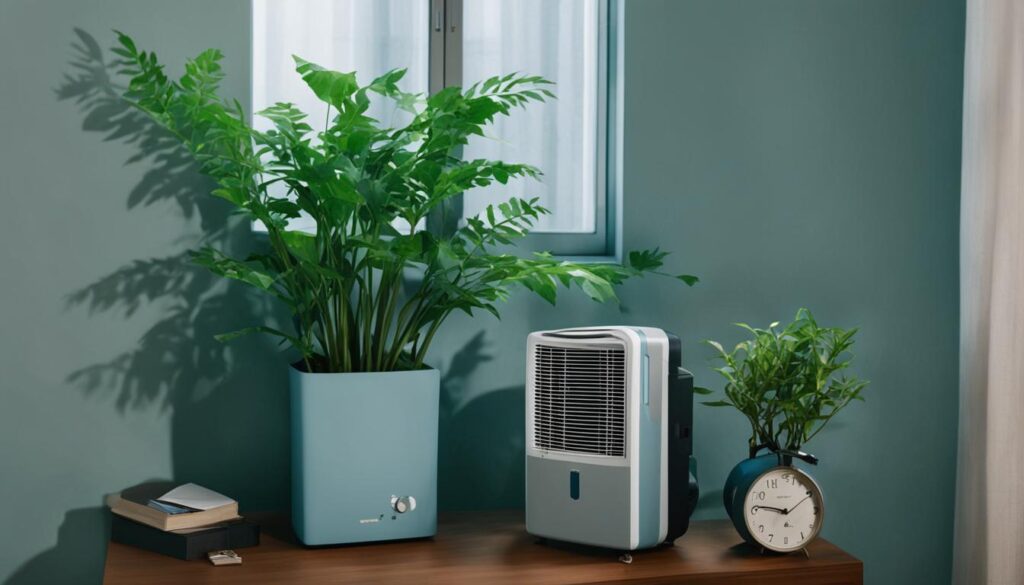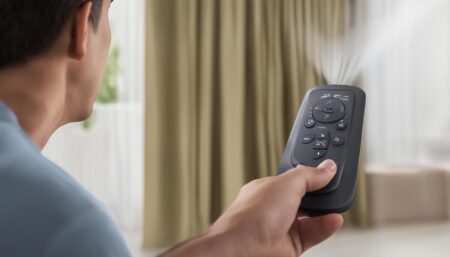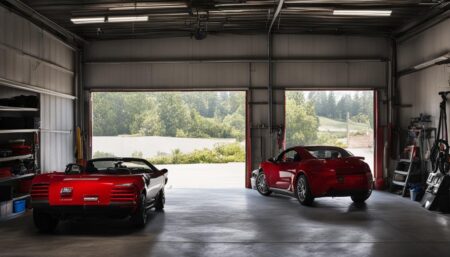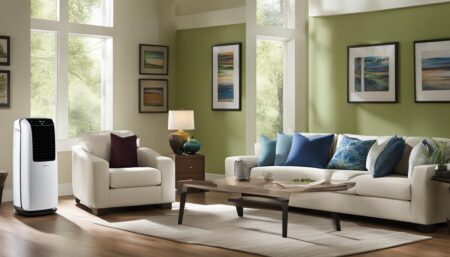Portable air conditioners have become increasingly popular as a convenient and cost-effective solution for cooling homes and offices. If you’re considering investing in a portable air conditioner, you may be wondering how long these units typically last and what factors can impact their durability. In this article, we’ll delve into the lifespan of portable air conditioners and provide valuable insights to help you make an informed decision.
When it comes to the average lifespan of portable air conditioners, it typically ranges from 5 to 10 years. However, it’s important to note that several factors can influence this lifespan. The quality of the unit, maintenance practices, and usage patterns all play a significant role in determining how long your portable air conditioner will last.
To ensure longevity and optimal performance, it’s essential to follow the manufacturer’s maintenance guidelines. Regular cleaning and proper storage during off-seasons can help prevent dust accumulation and potential damage to the components. Additionally, using your portable air conditioner in moderation and avoiding excessive strain can help prolong its lifespan.
Environmental conditions can also impact the durability of your portable air conditioner. Extreme heat, humidity, and exposure to harsh elements can accelerate wear and tear. In such cases, providing proper ventilation and protecting the unit from direct sunlight can help mitigate potential damage.
As with any appliance, there may come a time when repair or replacement is necessary. Keep an eye out for signs that indicate your portable air conditioner needs maintenance, such as unusual noises, reduced cooling efficiency, or higher energy bills. Regular inspection and cleaning of filters and components can prevent potential problems and extend the lifespan of your unit.
In conclusion, portable air conditioners have an average lifespan of 5 to 10 years, depending on various factors. By following maintenance guidelines, using the unit responsibly, and being aware of potential issues, you can maximize the durability and efficiency of your portable air conditioner.
Key Takeaways
- Portable air conditioners have an average lifespan of 5 to 10 years.
- Maintenance practices and usage patterns can impact the longevity of portable air conditioners.
- Quality of the unit and environmental conditions can affect the lifespan.
- Regular maintenance, such as cleaning filters and components, is essential for optimal performance.
- Signs that your portable air conditioner needs maintenance include unusual noises and reduced cooling efficiency.
How Reliable is a Portable Air Conditioner?
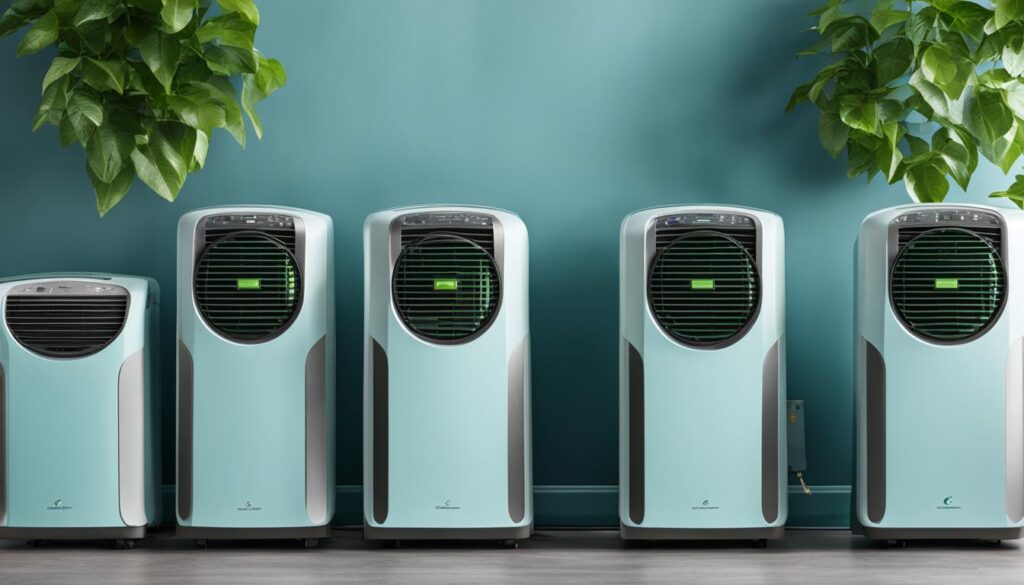
Portable air conditioners are known for their reliability when used and maintained properly. These appliances are designed to provide indoor cooling in rental spaces or for temporary cooling needs. While they offer convenience and flexibility, it’s important to understand that portable air conditioners consist of several components that may be prone to breakage over time.
Among the components that can affect the reliability and durability of a portable air conditioner are the evaporator fan, compressor, and condenser fan. These parts are responsible for the air cooling process and require regular maintenance to ensure optimal performance.
Proper care and maintenance can significantly extend the lifespan and reliability of a portable air conditioner. Regularly cleaning or replacing air filters, checking and cleaning the condenser coils, and ensuring proper airflow are essential steps to keep the unit running smoothly. Additionally, it’s important to follow the manufacturer’s guidelines for maintenance to prevent issues and improve efficiency.
Note: The image above showcases the reliability of portable air conditioners, demonstrating their effectiveness in providing indoor cooling.
Overall, while portable air conditioners are generally reliable, their longevity and durability can be influenced by the quality of their components and proper maintenance. By taking the necessary steps to care for and maintain your portable air conditioner, you can ensure its reliability and enjoy efficient cooling for years to come.
Factors Affecting the Lifespan of Portable Air Conditioners
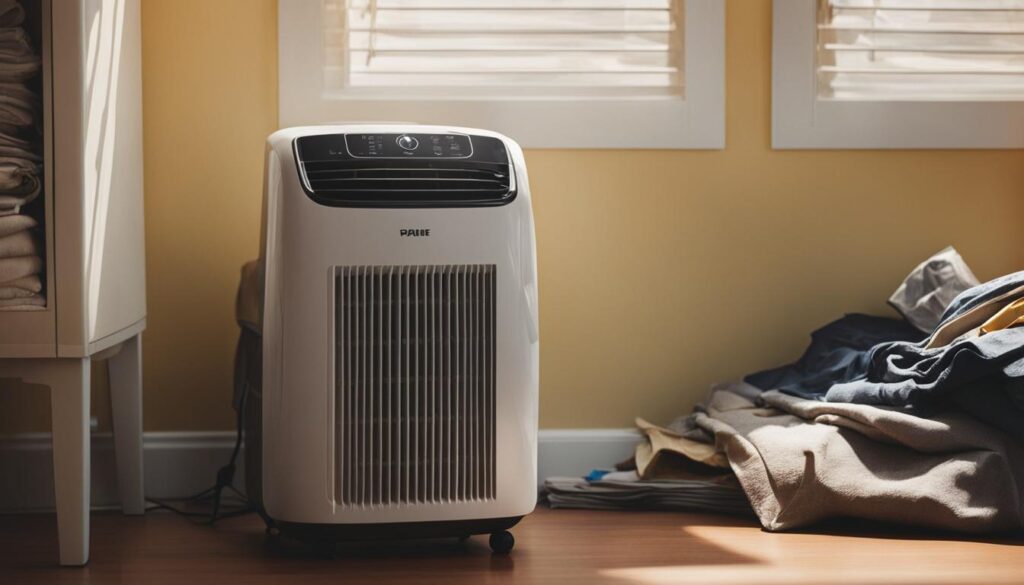
When it comes to the lifespan of portable air conditioners, several factors come into play. Understanding these factors can help you make informed decisions about maintenance and usage to maximize the longevity of your unit. Let’s explore the key factors that can impact the lifespan of portable air conditioners.
Sizing of the Unit
The sizing of the portable air conditioner unit has a significant impact on its lifespan. If the unit is too small for the space, it will have to work harder to cool the area, leading to increased wear and tear on its components. On the other hand, an oversized unit may cycle on and off frequently, causing unnecessary stress on the system. Ensuring the appropriate sizing of the unit is crucial for optimal performance and durability.
Usage Patterns
The way you use your portable air conditioner can also affect its lifespan. Continuous usage for extended periods without proper rest intervals can strain the unit’s components and reduce its overall lifespan. Additionally, excessive heating and cooling demands or frequent temperature adjustments can put added stress on the system. It is recommended to maintain a balanced and moderate usage pattern to prolong the life of your portable air conditioner.
Maintenance Performed
Regular maintenance is essential for preserving the lifespan of your portable air conditioner. Proper care and cleaning of filters, coils, and other components help prevent dust and debris buildup, which can impede the unit’s performance and cause premature failure. Following the manufacturer’s maintenance guidelines and scheduling professional servicing when necessary can significantly extend the lifespan of your portable air conditioner.
Quality of the Unit
The quality of the portable air conditioner unit itself plays a vital role in its lifespan. Investing in a well-built, reputable brand ensures reliability and durability. Cheap or low-quality units may have inferior components that are more prone to malfunction or failure, leading to a shorter lifespan. When purchasing a portable air conditioner, it is important to choose a reliable brand known for its quality products.
Environmental Conditions
The environmental conditions in which the portable air conditioner operates can impact its lifespan. Extreme weather conditions, such as very high or low temperatures, humidity, or exposure to direct sunlight, can strain the unit and reduce its efficiency and longevity. Additionally, operating the unit in dusty or dirty environments can lead to clogged filters and decreased airflow, affecting the performance and lifespan of the unit.
Adequate Maintenance and Care
To maximize the lifespan of your portable air conditioner, it is crucial to provide adequate maintenance and care. This includes regular cleaning, checking for any signs of damage or wear, and addressing any issues promptly. Following the manufacturer’s guidelines and recommendations, as well as seeking professional assistance when needed, will help ensure your portable air conditioner operates efficiently and lasts for years to come.
| Factors | Impact |
|---|---|
| Sizing of the Unit | Inadequate sizing strains the system, while oversized units may cycle frequently. |
| Usage Patterns | Frequent heavy usage and temperature adjustments shorten the unit’s lifespan. |
| Maintenance Performed | Regular maintenance prevents dust buildup and ensures optimal performance. |
| Quality of the Unit | Poor quality units have inferior components that may fail sooner. |
| Environmental Conditions | Extreme weather, humidity, and dirty environments can strain the unit. |
Signs Your Portable Air Conditioner Needs Maintenance
Regular maintenance is essential to ensure that your portable air conditioner operates efficiently and has a long lifespan. By keeping an eye out for the following signs, you can catch maintenance needs early and address them promptly:
- Unusual noise: If your portable air conditioner starts making strange noises, such as rattling or grinding sounds, it could indicate a mechanical issue that requires attention.
- Lack of cooling: If your unit is no longer providing adequate cooling despite regular use, it may be a sign that it needs maintenance or repairs.
- Increased energy bills: A sudden increase in your energy bills could be a result of your portable air conditioner working harder than usual due to underlying issues.
- Increased humidity in the space: If you notice a rise in humidity levels despite the air conditioner running, it could indicate a problem with the unit that needs maintenance.
- Strange smells: Unpleasant odors emanating from the air conditioner can be a sign of mold or debris buildup, indicating a need for cleaning.
- Signs of leakage: Any signs of water leakage around the unit should not be ignored, as it could indicate a refrigerant leak or a malfunctioning condensate drain.
- Blocked filters: Dirty filters can hinder the airflow of your portable air conditioner, reducing its efficiency and potentially causing damage if left ignored.
To keep your portable air conditioner running smoothly, it is crucial to perform regular maintenance tasks, such as:
- Cleaning or replacing filters as recommended by the manufacturer.
- Checking and cleaning evaporator coils to remove dirt and debris buildup.
- Ensuring proper airflow around the unit by keeping it away from obstacles.
- Inspecting and cleaning the condensate drain to prevent blockages.
- Verifying the tightness of electrical connections and tightening if necessary.
By staying vigilant for these signs and performing routine maintenance, you can extend the life of your portable air conditioner and ensure optimal cooling performance.
When to Consider Repairing or Replacing Your Portable Air Conditioner
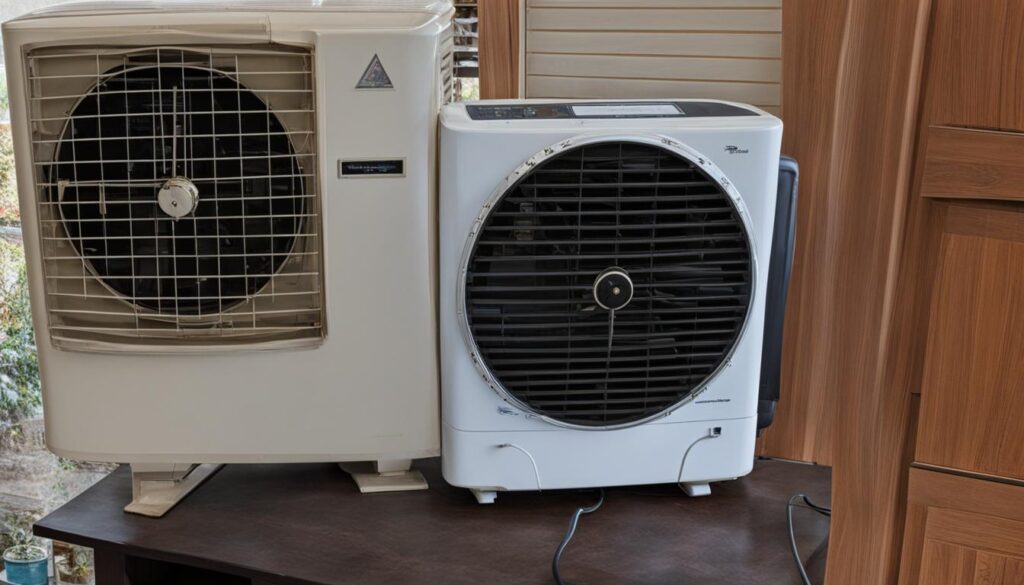
When it comes to your portable air conditioner, it’s important to know when it’s time to repair or replace the unit. Making the right decision can save you time, money, and ensure you stay cool during hot summer months. Consider the following factors before making a final choice:
- Cost of repair: Compare the cost of repair with the price of a new unit. If the repair cost is close to or exceeds the cost of a replacement, it may be more cost-effective to replace the unit.
- Age of the unit: Portable air conditioners have a lifespan of around 5 to 10 years. If your unit is nearing the end of its lifespan, it may be a better investment to replace it rather than spending money on repairs.
- Extent of the issues: Consider the severity and frequency of the issues your portable air conditioner is experiencing. If the repairs required are extensive or if the unit consistently breaks down, it might be time for a replacement.
- Overall efficiency: Take into account the energy efficiency of your current unit. Newer models often have improved efficiency, which can lead to energy savings and lower utility bills.
- Availability of replacement parts: If your unit is older or a less popular model, finding replacement parts may be challenging. If parts are difficult to obtain, it may be more practical to replace the unit.
By considering these factors, you can make an informed decision on whether to repair or replace your portable air conditioner. Remember, if the repair cost is high, the unit is old, or the repairs required are extensive, replacing the unit may be the more cost-effective option. However, if the unit is relatively new and the repairs are minor, repairing the air conditioner can be a viable choice.
Quote:
“The key is to weigh the cost of repair against the value it brings to your home’s overall comfort and energy efficiency.” – HVAC specialist, Sarah Johnson
Signs it’s Time to Repair or Replace Your Portable Air Conditioner
| Signs it’s Time to Repair | Signs it’s Time to Replace |
|---|---|
| Strange noises during operation | High repair costs |
| Inconsistent cooling | Age of the unit nearing 10 years |
| Minor issues that can be easily fixed | Frequent breakdowns |
| Unit still within warranty period | Difficulties obtaining replacement parts |
| Low repair costs | Poor energy efficiency |
Options for AC Replacement and Short-Term Solutions
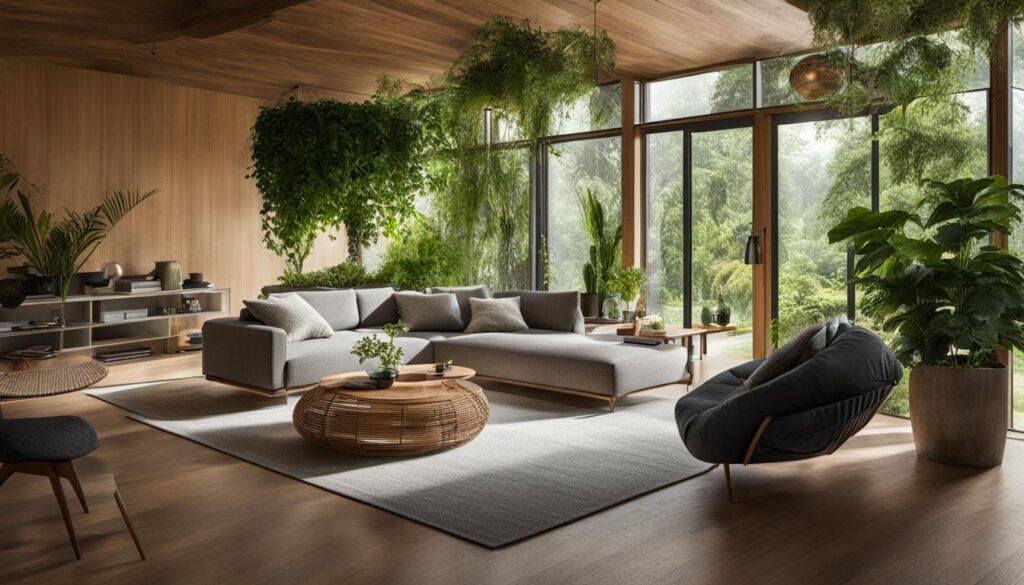
If it’s time to replace your portable air conditioner, there are several options available. These include window unit ACs, portable ACs, residential single whole-home AC units, central air-source heat pumps, and ductless mini-split AC systems. Each option has its own advantages and considerations, such as cooling capacity, energy efficiency, installation requirements, and cost.
In the short term, you may consider using additional fans or temporary cooling solutions to keep your space comfortable while deciding on a replacement. Adding fans can help circulate the air and create a cooling breeze. You can also explore other short-term cooling options like evaporative coolers or ceiling fans.
Here is a table that summarizes the different options for AC replacement:
| AC Option | Advantages | Considerations |
|---|---|---|
| Window Unit ACs |
|
|
| Portable ACs |
|
|
| Residential Single Whole-Home AC Units |
|
|
| Central Air-Source Heat Pumps |
|
|
| Ductless Mini-Split AC Systems |
|
|
With these options and short-term cooling solutions, you can find the best solution to keep your space comfortable and cool while considering a replacement for your portable air conditioner.
The Most Energy Efficient Air Conditioner Upgrade
When considering a replacement for your portable air conditioner, it is important to prioritize energy efficiency. By upgrading to an energy-efficient air conditioning system, you can not only enjoy a comfortable indoor environment but also contribute to a sustainable future and reduce utility costs in the long run.
One of the best eco-friendly cooling options to consider is a central air-source heat pump. These systems are designed to provide both cooling and heating capabilities, making them versatile and suitable for year-round use. Unlike traditional air conditioners that only provide cooling, heat pumps can efficiently heat your home during colder months, eliminating the need for separate heating systems.
Central air-source heat pumps are known for their exceptional energy efficiency. They utilize advanced technology, such as variable speed compressors and smart thermostat controls, to maximize efficiency and minimize energy consumption. By efficiently transferring heat between the indoors and outdoors, these systems can provide reliable and consistent cooling while using significantly less energy compared to other options.
In addition to saving energy, central air-source heat pumps also help reduce greenhouse gas emissions and lower your carbon footprint. By opting for a sustainable cooling solution, you contribute to a cleaner environment and support a greener future for generations to come.
To understand the energy efficiency of different central air-source heat pumps, you can refer to the Seasonal Energy Efficiency Ratio (SEER) and Heating Seasonal Performance Factor (HSPF) ratings. These ratings indicate how well the system performs in cooling and heating mode, respectively. The higher the SEER and HSPF ratings, the more energy-efficient the system is.
When choosing an energy-efficient air conditioner upgrade, it is essential to consider factors such as the size of your home, insulation levels, and climate. A professional HVAC technician can assess your specific requirements and recommend the most suitable heat pump for your needs.
Investing in an energy-efficient air conditioner upgrade not only benefits the environment but also provides long-term cost savings. With reduced energy consumption and lower utility bills, you can enjoy a comfortable indoor climate without breaking the bank.
Conclusion
In conclusion, the average lifespan of a portable air conditioner ranges from 5 to 10 years, depending on various factors. Proper maintenance, usage patterns, and environmental conditions play a crucial role in determining the durability and longevity of these cooling units. By following maintenance guidelines and taking care of your portable air conditioner, you can maximize its lifespan and ensure efficient cooling for years to come.
When it comes to repair or replacement, factors such as the cost of repairs, the age of the unit, and the extent of the issues should be considered. If repairs are extensive or the unit is old, it may be more cost-effective to replace it with a newer model.
Upgrading to energy-efficient options can provide long-term benefits in terms of cost savings and environmental impact. Consider options like central air-source heat pumps, which not only offer both cooling and heating capabilities but also significantly reduce energy consumption and utility costs. These advanced systems are designed to maximize efficiency and minimize environmental impact.
To make the best decision for your cooling needs, assess your specific requirements and consult with professionals who can guide you through the process. With proper care and consideration, you can enjoy comfortable and efficient cooling with your portable air conditioner for many years.



